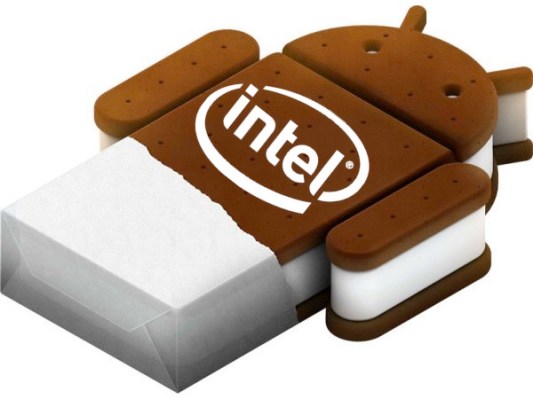Intel hasn’t been able to make much of a dent in the smartphone or tablet markets, but they’re not about to give up just yet. ComputerWorld reports that Intel is working to make Ice Cream Sandwich-powered devices a part of their future.
The mobile space represents a huge opportunity for Intel, which is made all the more maddening because they’ve never really been able to crack it. Less than a handful of Intel-powered Android tabs ever saw the light of day, and most (like the Cisco Cius, which ran Froyo of all things) were geared heavily toward enterprise use.
Meanwhile, if you were to peer into the innards of nearly any smartphone or tablet on the market, you would likely see an ARM-based processor. It’s a reality that can elude some, as processors can bear ostentatious names like Snapdragon and Hummingbird that obscure the nature of their architecture.
Now, it looks as though Intel is about to roll their sleeves up and fight ARM’s onslaught. Intel showed off some frankly impressive smartphone and tablet reference designs at a developer event back in September, both of which ran on Intel’s Medfield plaftorm. The company has also promised that the first Intel-powered smartphone would see the a release sometime next year, so it’s apparent they’re beginning to get the lead out.
Given that Intel has their eye on both the smartphone and tablet markets, their apparent zeal for Ice Cream Sandwich makes complete sense. Ice Cream Sandwich is intended to be Google’s unifying OS, one that will bridge the experience gap between smartphones and tablets alike. If Intel can ensure that Ice Cream Sandwich will run without a hitch on whatever mobile chipset they go with, they stand a serious chance at popping up in your next tablet.
For the time being though, Intel is stuck playing the waiting game. According to an Intel spokesperson, Ice Cream Sandwich “includes OS optimization for x86,” so the actual work of getting ICS running may not be too difficult. Still, a concerted effort can’t begin they actually get their hands on the software, so Intel still has a little while to go before they get cracking.
